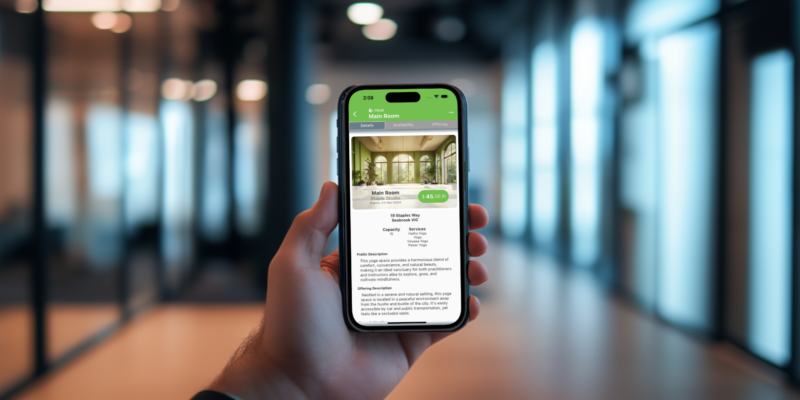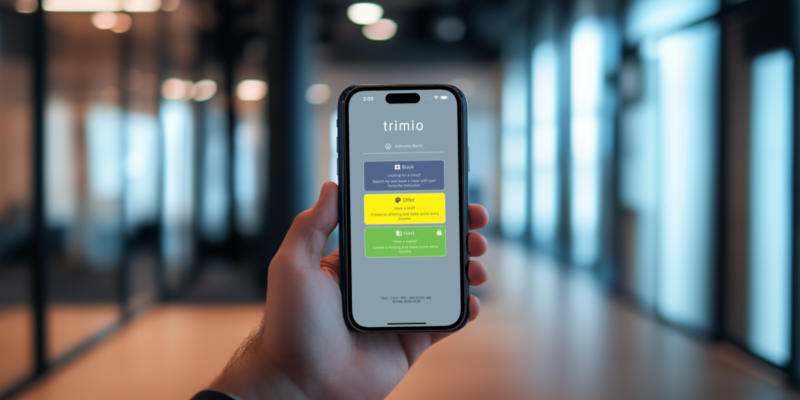A Shifting Industry Landscape
The fitness and wellness industry has undergone radical transformations in the last decade, with technology-driven platforms reshaping how services are accessed, booked, and delivered. The Pilates industry, long dependent on traditional studio-based employment models, is now experiencing its own disruption. Much like Uber redefined transportation and Airbnb revolutionised hospitality, Trimio is introducing a flexible, on-demand model that allows Pilates instructors and studios to operate in a way that maximises efficiency and profitability.
The demand for Pilates continues to grow, yet instructors and studio owners face mounting challenges. Instructors often struggle to secure stable employment or earn a fair wage, while studio owners face rising overhead costs and underutilised space. Trimio provides a solution that benefits both parties, creating a new ecosystem where Pilates professionals can thrive without being limited by outdated business structures.
The Limitations of the Traditional Studio Model
For years, the standard approach for Pilates instructors has been to seek employment at a studio or invest heavily in opening their own space. This has come with significant challenges. Many instructors are paid a fixed hourly rate while studios take a large percentage of the class fees. There is little room for financial growth, and earnings are capped by the number of classes an instructor can teach within a studio’s schedule. Additionally, instructors have limited control over pricing and often cannot take their clients with them if they leave a studio.
Studio owners, on the other hand, face a different set of struggles. Operating a Pilates studio requires considerable investment in leasing space, purchasing equipment, and hiring instructors. Even successful studios often deal with inefficiencies, particularly in how their space is used. Outside of peak hours, many studios remain empty, resulting in lost revenue. Traditional studios operate on a membership or class package model, and when attendance drops, revenue suffers.
How Trimio is Redefining the Industry
Trimio introduces a technology-driven solution that mirrors the way platforms like Uber and Airbnb have changed their respective industries. Instead of being tied to a fixed studio or waiting for employment opportunities, instructors can use Trimio to find and book studio space as needed. This gives them full control over when, where, and how they teach, allowing them to set their own rates and retain their clients without studio-imposed restrictions.
For studio owners, Trimio offers a way to monetise unused space by making it available to independent instructors. Instead of relying solely on memberships and scheduled classes, studios can generate additional income by renting out their space during off-peak hours. This new revenue stream helps balance the financial strain of overhead costs while keeping the studio active throughout the day.
The Benefits of an On-Demand Model
One of the defining characteristics of the Uberisation trend is the shift toward an on-demand economy. Trimio’s model aligns with this by offering flexibility to both instructors and studio owners. Instructors no longer have to wait for job openings or negotiate employment terms that limit their potential. They can book a space, set their pricing, and start teaching immediately. This is particularly beneficial for new instructors who may struggle to find work in traditional studios but have the drive and client base to succeed on their own.
Studios, rather than facing empty rooms and fixed operational constraints, can take advantage of Trimio’s marketplace to increase revenue passively. A studio that might have previously closed during certain hours can now accommodate multiple instructors throughout the day, leading to a more dynamic and financially stable business model.
Eliminating Barriers to Entry for Pilates Professionals
Starting a Pilates business has historically been a significant financial undertaking. For instructors who wanted to branch out on their own, the options were limited to either securing a full-time position at a studio or investing in opening their own space. Both choices came with risks—either a lack of control over their career path or overwhelming startup costs and long-term lease commitments.
Trimio eliminates these barriers by allowing instructors to operate independently without the financial burden of leasing a space. By simply booking studio time when they need it, instructors can focus on growing their client base and increasing their earnings without incurring unnecessary expenses. This creates a more accessible career path for newly certified instructors while also benefiting experienced teachers looking for more autonomy.
A Win-Win for Instructors and Studios
The shift toward on-demand business models has proven successful in multiple industries, and Pilates is no exception. With Trimio, instructors gain financial freedom, increased career flexibility, and full ownership of their business. Studios, in turn, maximise their revenue potential, increase space utilisation, and reduce financial waste from underused facilities.
As the Pilates industry evolves, those who embrace this new model will be better positioned for long-term success. The traditional employment-based system no longer meets the needs of modern Pilates professionals, and the demand for flexible, self-directed business opportunities is growing. Trimio is at the forefront of this transformation, empowering instructors and studios alike to thrive in an industry that is finally catching up with the broader trends of the digital economy.
The future of Pilates is here, and it is built on a foundation of accessibility, efficiency, and financial empowerment. By shifting to an on-demand model, instructors and studios can create more sustainable businesses that work for them, not against them. Trimio is leading this charge, and those who take advantage of its platform now will set themselves apart in an industry that is poised for major change.



